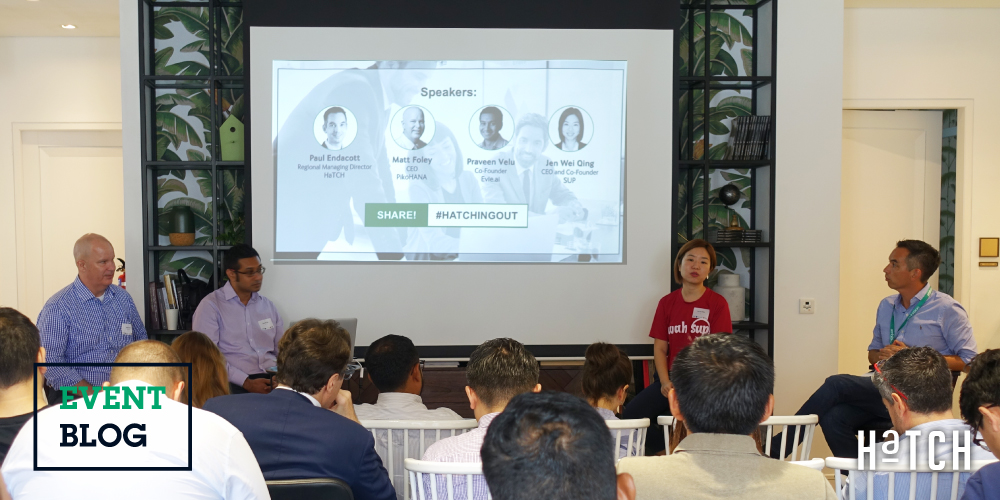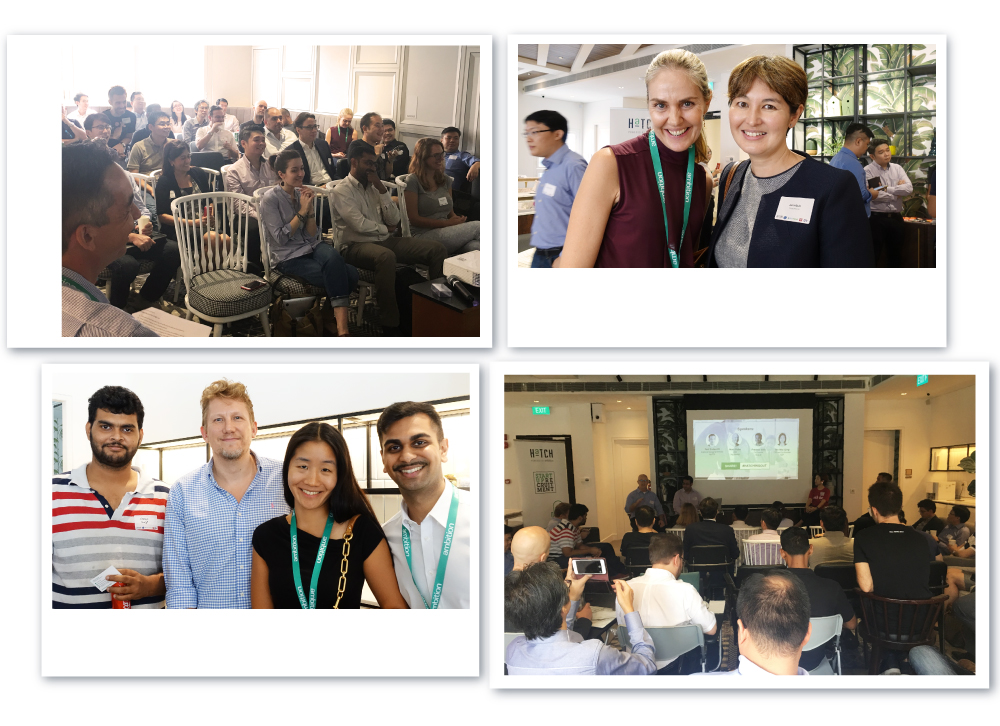Market Insights Report 2025
Explore the latest hiring trends and in-demand skills shaping the employment landscape in 2025 to guide your hiring strategies or job search.

Explore the latest hiring trends and in-demand skills shaping the employment landscape in 2025 to guide your hiring strategies or job search.

Explore the latest hiring trends and in-demand skills shaping the employment landscape in 2025 to guide your hiring strategies or job search.

Explore the latest hiring trends and in-demand skills shaping the employment landscape in 2025 to guide your hiring strategies or job search.



HaTCH recently held an event, "Startup Stories from the Frontline" at The Co. featuring prominent founders from SUP, Evie.ai and PikoHANA of the Singapore startup community. Our speakers were all startup founders of their own right, and they shared valuable insights and lessons on running a successful startup.
Maybe it was the stellar line up of startup talent on the panel that HaTCH had lined up for the event. Maybe it was the cool co-share space of The Co. on Duxton Road. Or maybe it was the offer of pizza and beer on a Wednesday lunchtime. Whatever the reason, there was a great vibe as people from the startup community packed into the room to listen to three luminaries of the Singapore startup scene holding forth on lessons learned.
Here's what we gathered from each of our startup experts:
Serial entrepreneur Wei Qing talked about how she didn’t have a co-founder for her first business. It was hard. She prefers having a co-founder as she does now (Sam Lipoff, SUP CTO). She gains a lot of support from the accelerator muru-D from where she and Sam run the business.
Wei Qing talked about the need to experiment. She once received advice to stage a landing page without having a business, and then see what the response to the landing page was and learn from online interactions before committing to an idea.
When asked about hiring, Wei Qing cautioned that people should be careful when trying to focus on hiring rockstars; after which you will spend 40% of your time managing imperfections. And be careful on hiring friends.
On the crucial topic of attracting investment, Wei Qing talked about how you need to start with a much bigger pool of potential investors than you think. She talked about the considerations from an investment standpoint. Is it only the cash or are other things important? A smarter investor can also bring you networking or competitive tension. Startups need to be careful about raising money too early, and when to do the next round of funding.
For SUP, she knew a good few investors. She didn't canvass 20 of them to get the investment she needed. Instead, she used their networks to compile a list of 200 investors. From this, she was able to develop a credible list of possible backers. Creating a sense of demand in her business was her aim. She wanted to avoid accepting money from the aggressive investor who wanted 50% of the company for $1M.
Taking the right money was also something that Praveen Velu talked about and he made the further point that you want to be raising money when you don’t need it. Set deadlines for investors, make them stick to your timeline and do it at a time when you are not desperate.
When negotiating term sheets, it is the last time for startups to be adversarial. Once you sign the sheet, investors want to see a return and founders want to be able to use the money to grow. Setting expectations at the outset, no matter how confrontational, was critical. After signing off the term sheet, you are all on the same team and you had better be moving in the same direction.
Praveen explained that he would always prepare for the worst case scenario. He learnt, from running a startup, that you have to be optimistic. He has been saying “yes” to trying and figuring things out. He classifies this as having a thirst for adventure.
He also talked about hiring challenges (Editor’s note: Surely Oonagh can help here?). Startups don’t pay enough for people to do the jobs only for money. When it comes to hiring, he asks his investors to vet candidates for a second opinion.
Matt, an experienced CFO, cautioned the room that 9 out of 10 starts up fail. He advised that startup folks need to have passion, see a good market fit and have the ability to scale.
On company culture, Matt advised that you can’t be “closed”. You need to be open. If you close up as a leader, you come off as evasive to the outside people such as investors or customers.
On hiring, Matt asks clients to vet key candidates. He is too busy to give the hiring process all the time it needs; clients offer an invaluable perspective.
Matt had some great advice for candidates looking to work at a startup. People should ask founders what their operating runway is and who their investors are. If a company is burning cash you will need investors to stay afloat.
From an investment point of view, Matt talked about other values that can come with the money. Smart investors can also bring you networking. He advised the audience to be careful about raising money too early. This can place great pressure on the next round of funding.
The audience threw plenty of great questions at the panel and most stayed way beyond closing remarks to get more time with our startup experts. Join us next time; email oonagh.grace@hatch.careers to be added to the mailing list.
HaTCH is also hiring to help fill all the great startup roles that we are finding on the Singapore entrepreneur circuit! Contact Oonagh if you are interested in joining a startup that helps startups.
View more photos of the event here.